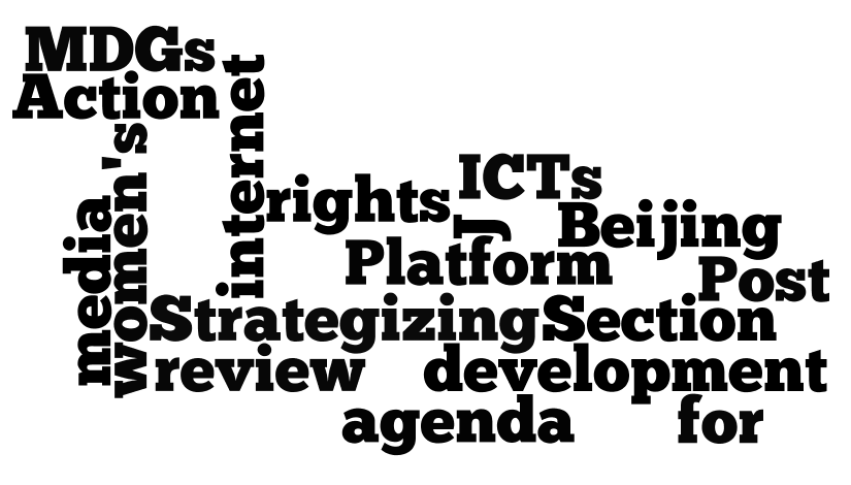
A strategising meeting for Beijing Platform for Action (BPFA) Section J was held on 13 March at the Vienna Cafe in the UN Building during this year’s UNCSW 58. The meeting was attended by representatives of the Association for Progressive Communications (APC), Isis International, the Women and Media Collective, and Search for Common Ground.
This UNCSW is of major significance as it prepares for the +20 Review next year. In this historical review, the Beijing Platform for Action, the post-2015 development agenda and the Millennium Development Goals, will be merged into one agenda in the attempt to craft a transformative plan that not only looks at empowerment and development but attempts to transform structural areas using the BPFA 12 Critical Areas of Concern as the pillars for transformation. How the women’s movement strategises to participate in this Review will be important.
As media/ICT groups attending the UNCSW and concerned with Section J of the BPFA, the focus of the meeting was how to plan for Beijing+20, emphasising Section J concerns, particularly the use of all media and ICTs to be seen as an issue that cuts across all the 12 critical areas of concern in the BPFA. One key strategy is the need to frame issues from the women’s movements’ perspectives and integrating media issues within a feminist framework in assessing the gaps. Strategies for this can include such projects as women’s groups writing stories about the development of women’s media networks, highlighting challenges and successes since 1995. Another key issue identified is the engagement of young people in ICT, especially in the role of social media, an area that has been growing exponentially, primarily with the heavy usage by younger netizens. Even within women’s organizations, many young people have been brought in to work and there is a need to connect the young amongst the women’s media groups and networks.
The meeting also identified initial strategies to identify and engage key allies to discuss ongoing plans. The Review is also seen as a good opportunity to link community radio movements as part the women’s movement and to look at good models of CSO/UN media engagements since 1995. One concrete suggestion that emerged is to revitalise the Women’s Media Pool email list that had been instrumental in the 2005 Review. This email list provided a necessary linkage amongst the various women’s media and info-comm groups. In addition to this, other potential key allies were identified. They are the International Women’s Media Foundation, the UNESCO Global Alliance on Media and Gender (GAMAG), the IFEX free expression network, the International Association of Women in Radio and Television (IAWRT), World Association for Christian Communication (WACC), and the World Association of Community Radio Broadcasters (AMARC).
All media groups who would like to link up and or get more information, please get in touch with any one of the the following:
Isis International
Luz Martinez and Nicole Hutchison
Facebook page: IsisInternationalOrg
Twitter: IsisIntl Email: nicoleisismanila.org
Women and Media Collective
Velayudan Jayachithra
Email: sithroo.jayachithra@gmail.com
APC
Jan Moolman, Jac sm Kee, Dafne Sabanes Plou
Email: jan@apcwomen.org
Twitter: @endvaw
Search for Common Ground
Rahmi Dian Agustino
Twitter: @electric_d